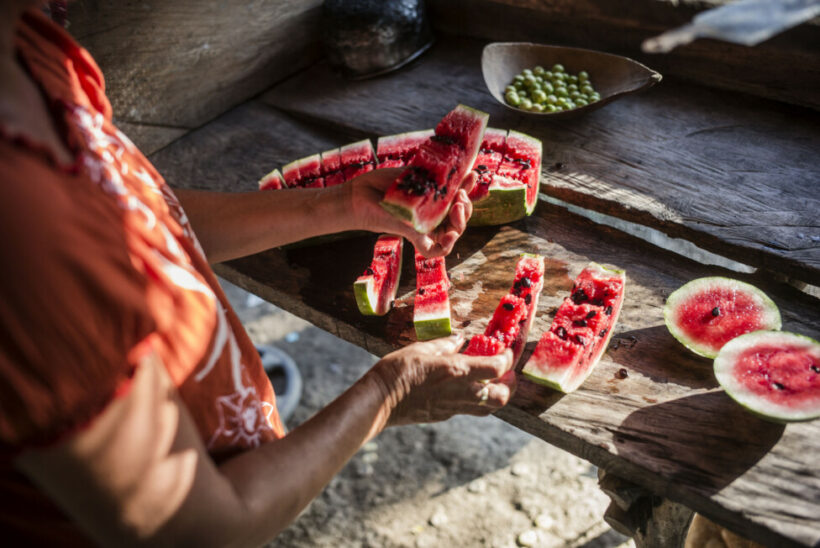On Saturday 10 December, Human Rights Day, it will be 74 years since the United Nations adopted the Universal Declaration of Human Rights, a document that enshrines the rights and freedoms of all human beings. As far as the right to food is concerned, since 1966 states have had a legal obligation to promote and protect it as part of economic, social and cultural rights.
By Máximo Torero
Everyone has the right to be free from hunger. However, now more than ever, this fundamental right is at risk. More and more people are spilling out into the hunger trap, in a global context characterised by multiple crises such as climate change, pandemics, conflict, growing inequalities and gender-based violence,
As many as 828 million people were hungry in 2021, an increase of 150 million since the outbreak of the coronavirus disease pandemic, covid-19. Looking ahead, nearly 670 million people are projected to still not have enough to eat in 2030.
This highlights the fact that the world is moving away from its “Zero Hunger” goal, an ambitious commitment made less than a decade ago, as well as the profound inequalities that persist globally.
There is now enough food for the entire population. The problem is the inability to buy the food that is available, due to high levels of poverty and inequality. The war in Ukraine has made matters worse, creating disruptions in the energy market, and making food even more expensive.
So far this year alone, import costs in the 62 most vulnerable countries have increased by $25 billion, 39% compared to 2020.
The covid-19 pandemic, which started as a health crisis, quickly evolved into a food crisis, causing labour shortages in the agricultural sector and threatening disruptions in food supply chains.
The pandemic has taught us the importance of considering the interrelated challenges of meeting the growing demand for food, as well as protecting environmental, social and economic sustainability, as set out in the Sustainable Development Goals (SDGs).
Eighty percent of the world’s poor live in rural areas and depend on agriculture for their livelihoods.
Many of them – women, children, indigenous peoples and people with disabilities – have no access to food and struggle with poor harvests, high seed and fertiliser prices and lack of financial services. At the same time, they are directly affected by the risks and uncertainties of our agri-food systems.
The gravity of the situation calls for a holistic approach to hunger. Our agrifood systems are broken, and we have to fix them to make them more inclusive, resilient and sustainable.
This means adopting a human rights-based approach, in order to apply human rights principles to our actions. In this regard, international frameworks provide us with the legal and policy guidance necessary for the realisation of universal and fundamental human rights.
The UN Committee on Economic, Social and Cultural Rights, for example, affirms that the right to food is essential to the fulfillment of other human rights.
It emphasises sustainability, in that food must be accessible for present and future generations, availability, accessibility and the importance of healthy diets for food security, consumer protection and the obligation of states to provide adequate food to the population. All of this lays the foundation from which to rebuild our agri-food systems.
Creating a coherent policy and legal framework around these basic contents will promote the right to food.
As human rights are indivisible and interdependent, it is not possible to fully enjoy one human right without the fulfilment of the others. Advocating for policies that promote other human rights, such as health, education, water and sanitation, work and social protection, can also have a positive impact on the right to food.
Human Rights Day is a call for dignity, freedom and justice for all. Let us remember the fundamental role that the right to food plays in achieving these key principles, without which we will not succeed in reducing poverty and improving the well-being of all people.
Food is crucial for life, and to strengthen our global efforts to find lasting solutions to today’s challenges.
Maximo Torero is chief economist at the Food and Agriculture Organization of the United Nations (FAO). Between 2016 and 2029, he was executive director of the World Bank Group for Argentina, Bolivia, Chile, Paraguay, Peru and Uruguay, and previously headed the Markets, Trade and Institutions Division of the International Food Policy Research Institute (IFPRI).






